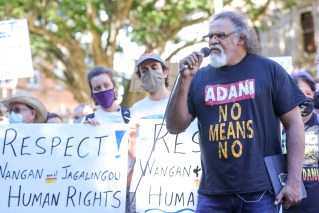Despite a November rally, super funds likely to book negative returns for 2022
The median superannuation funds grew 2.6 per cent in November following a rally in share and bond markets during the month.


Chant West said said the median growth fund return for 2022 was likely to be about -4 per cent.
The boost followed a 3 per cent return in October and Chant West said the performance over that period meant funds were heading towards a much better performance in 2022 than had been anticipated.
Chant West said the performance during December was so far negative but with two weeks remaining in the year the company said the median growth fund return was likely to be about -4 per cent.
“A good result under very testing circumstances,’ Chant West senior investment research manager Mano Mohankumar said.
“Over the month (November) Australian shares surged 6.5 per cent, international shares were nearly as strong (5.6 per cent in hedged terms), but the Australian dollar limited gains to 2 per cent in unhedged terms.
“After underperforming for much of the year emerging markets shares were the strongest performing sector, gaining a stunning 9.6 per cent.
“And with bond yields falling over the month, the Australian and international bonds gained 1.5 per cent and 2.4 per cent respectively.”
He said inflation appeared to have peaked in the US and Europe which gave rise to expectations that future interest rate hikes may be smaller and that improved investor sentiment.
China’s easing of its Covid policy was also a boost to markets.
He said although funds were likely to produce a negative return for the year, it was important that people understood it was a long term investment and this year’s result followed a 13.5 per cent increase last year.
He said the median growth fund was still 11 per cent up on the pre-Covid era at the end of January 2020.
He said if the year did end negatively it would be the first negative year since 2011.
“While that would be a short term setback, funds are continuing to meet their long term return and risk objectives,” he said.
Other commentators believe 2023 could be volatile and ANZ this week cut back its economic growth forecasts for Australia to 1.5 per cent from 1.8 per cent.
Few economists expect Australia to enter a recession.
Wilsons said it believed Australian companies were likely to have a moderate downgrade cycle in earnings, but there was potential for a pick up in 2024.












